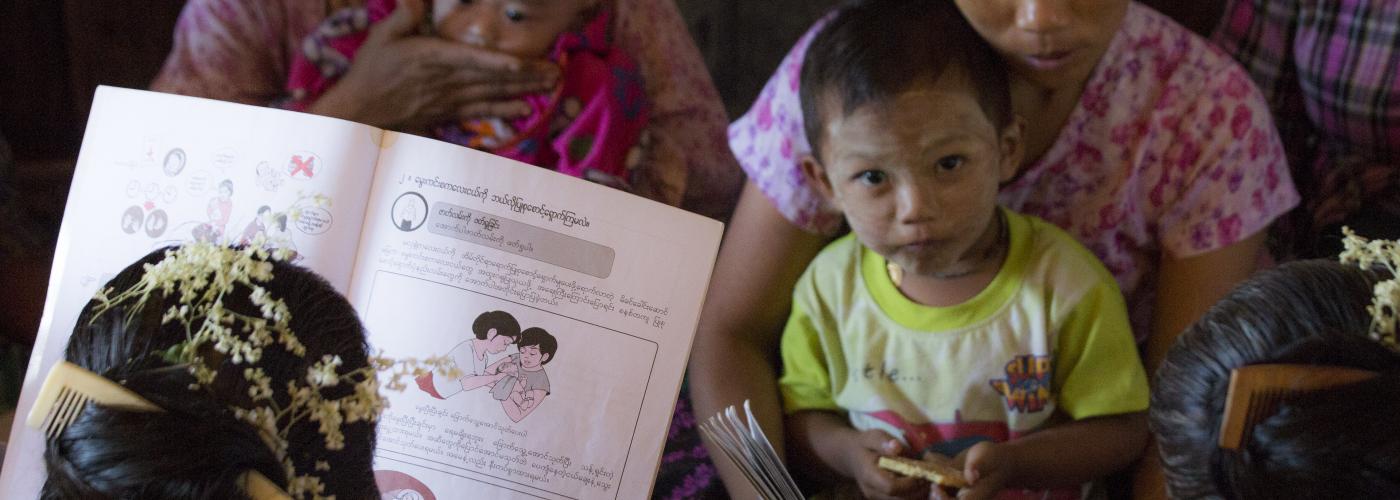Savings, Loans and Empowerment: 20-Plus Years of Learning from Pact’s Worth Model
Image

Pact’s longstanding livelihoods model, WORTH, is a critical tool for building financial access and incomes around the world. Since its inception in Nepal in 1998, WORTH has reached 1.14 million individuals, primarily women and girls, through 48,342 groups across 16 countries. To recognize and learn from this milestone, we recently conducted a formal review of 28 WORTH programs, 17 of which were funded by USAID.
WORTH brings groups of 20-25 members together to establish small community banks, known as WORTH groups, for regular savings and lending. These activities are layered with literacy, numeracy, and business-oriented skills development. Pooled savings are made available to members through short-term, low-interest loans often used for income-generating activities. By joining these groups, members accumulate assets, diversify their income sources, strengthen their social and economic networks and contribute to household decision-making and community development.
Between 1998 and 2020, WORTH groups generated savings of nearly $28 million and distributed more than $36 million in loans. Group members used these funds to improve their livelihoods, engage in small-scale enterprises, and contribute to community development projects. Literacy, numeracy, and skills-building activities further contribute to educational outcomes and women’s empowerment, bringing benefits for group members as well as their children.
A space for learning, social connection, and community engagement
The 28 WORTH programs reviewed were found to enhance educational, financial, social, and attitudinal capitals for group members, their households, and communities. These combined capitals contribute to generational capital, including improved health, education, and community outcomes that persist over time. WORTH improves individual education and skills, household income and savings behavior, and broader community-level outcomes around social cohesion and women’s leadership. These programs:
- Offer informal and formal educational opportunities that support human capital and intergenerational livelihoods development: Members develop their own knowledge and skillsets in literacy, numeracy, and/or business development and become more socially and economically empowered to send their children to school, rather than having children work for the household or in the informal sector.
In Madagascar, WORTH members and their children showed higher levels of individual self-esteem including through increased participation and confidence in a school or WORTH group settings.
- Promote economic empowerment and community engagement for women. Economic empowerment is derived both from business ventures and through improved financial knowledge that women in these programs use to bolster their communities, engage in social issues, assume local leadership roles, or invest in community infrastructures, such as schools, roads, and health centers.
In Eswatini, 33% of group members started a new business, and a further 41% of this cohort expanded from one to two businesses (or more). Women reported feeling better off compared to their peers and compared to their own lives before joining the WORTH group.
- Facilitate connections within WORTH groups that extend to the community. WORTH groups are a platform for women to connect and engage with each other and with their communities, thereby contributing to greater self-confidence, empowerment, trust, and social cohesion. This social capital— the trust engendered by the networks and relationships that develop between WORTH group members—creates a multiplier effect that also enables households and communities to thrive.
In Vietnam, 40% of women reported increased engagement in community social and development issues, and 13% of women took on local leadership positions.
- Generate opportunities to develop community and household resilience. WORTH groups provided a space for women to forge social and economic networks that they could rely on during difficult times. Diversifying income sources and generating savings enabled group members to engage in more sustainable livelihood options and have resources to fall back on in the face of shocks.
In Myanmar, 77% of members reported increased access to finance and 74% indicated their livelihoods had improved overall.
Future directions: Improved quality and innovation
Below are several important insights and best practices that WORTH implementers – and implementers of any group-based livelihoods intervention more broadly – should strive to integrate within their projects and groups going forward.
- Enhance community engagement. The local community should be involved in the design, planning, and implementation of programs. Community engagement also facilitates group financial investment in community projects, and many WORTH projects have a community development component that is selected by group members.
- Develop group capacity to promote sustainability. Programs should devote time and resources to develop group capacity for self-management, including mechanisms to promote transparency and flexibility, such as updated bylaws, flexible management tools, and internal monitoring to retain good leadership and enhance member participation. Groups can be supported to develop linkages, local networks, and contacts with local government, NGOs, and community leaders to respond to evolving group and community needs.
- Ensure an inclusive model to reach more-vulnerable members. Some WORTH programs reported that certain women were at times excluded from joining groups or were more likely to drop out due to limited outreach, high levels of mobility, or social biases. To address this, programs can encourage traditionally marginalized women to join WORTH groups through better outreach and community engagement and can adapt program materials to meet the needs of different groups of women and encourage their participation.
-
Enable WORTH group experiences to become lessons for other WORTH and VSL groups globally. WORTH groups have tailored the model to adapt to their local needs and groups often self-replicate, as existing groups help to start new groups. Sharing these adaptations and groups’ other outcomes and stories can provide inspiration to WORTH and VSL groups in other contexts on how to maximize the utility of their own groups and learn from others’ experiences.
Pact’s WORTH program has proven to be a sustainable and impactful model for economic empowerment, particularly for women and young people. This review has shown that programs continue to adapt and innovate to effectively reach and retain group members and to empower them to develop sustainable livelihoods that enhance individual and household wellbeing, alongside community-led engagement. Looking forward, Pact will continue to ensure WORTH programming’s high quality, while pushing for innovation, such as through continued scaling of the myWORTH mobile application, strengthening linkages to formal financial services, adapting the model for highly mobile and urban populations, and ensuring accessibility for harder-to-reach groups in the countries where Pact operates.
Emma Willenborg is a Livelihoods Officer at Pact. Livelihoods is part of Pact’s Sustainable Markets portfolio, which also includes Pact’s work on the environment, energy and artisanal and small-scale mining.


